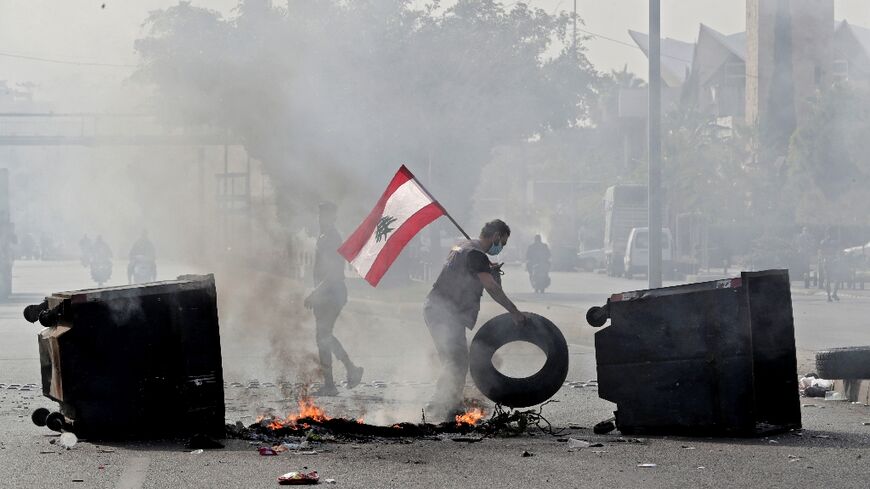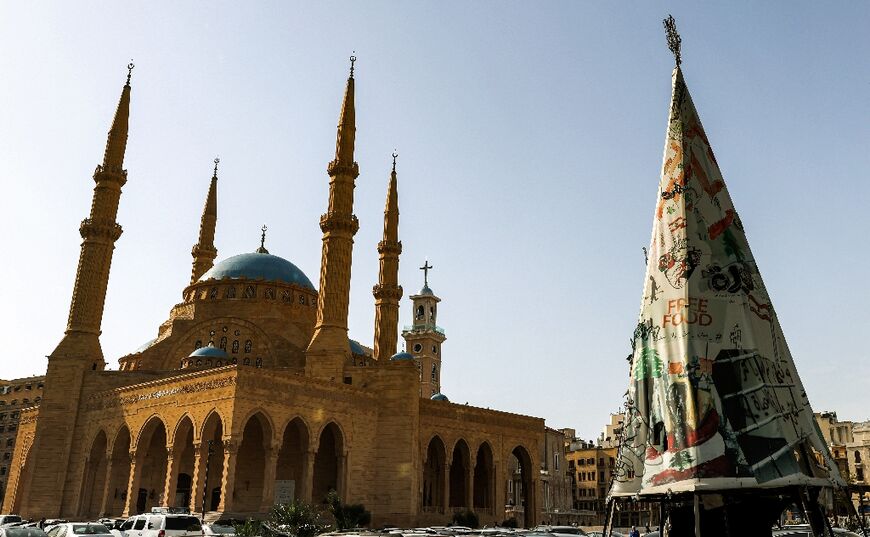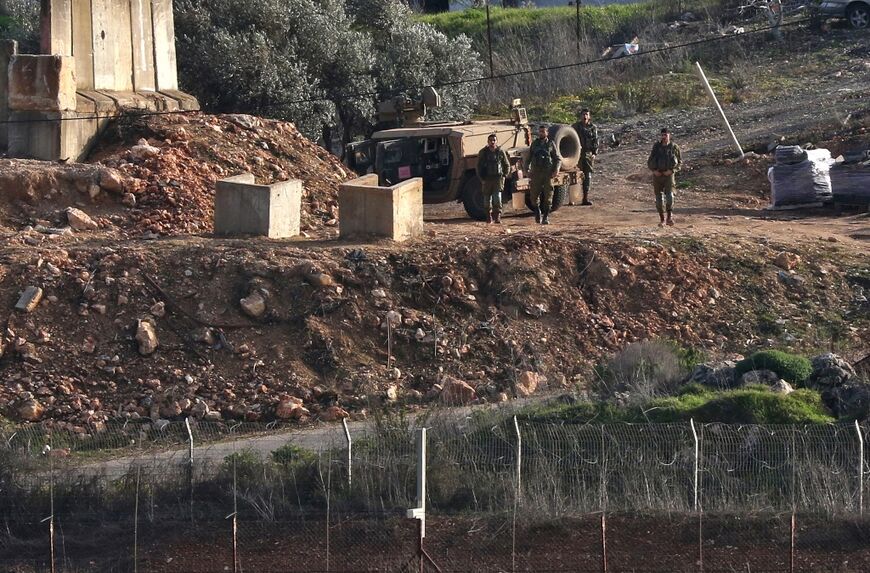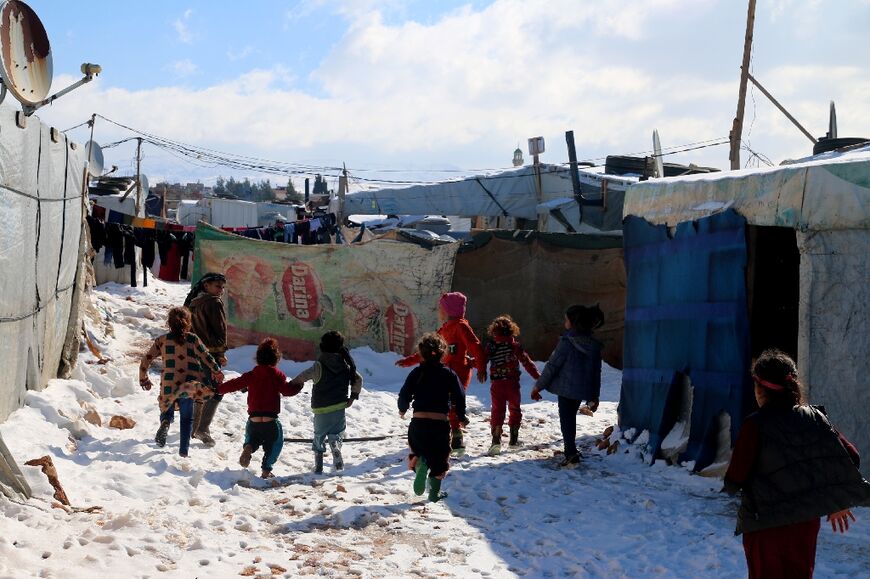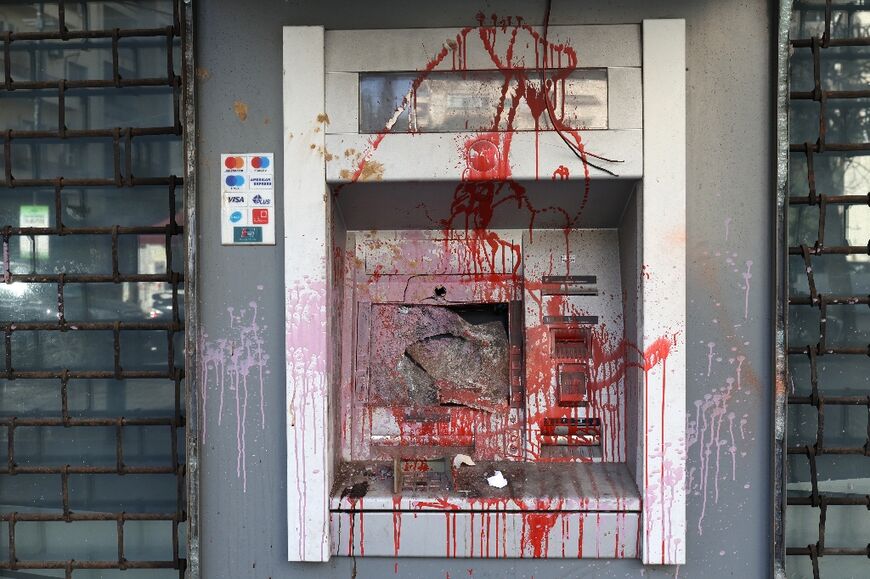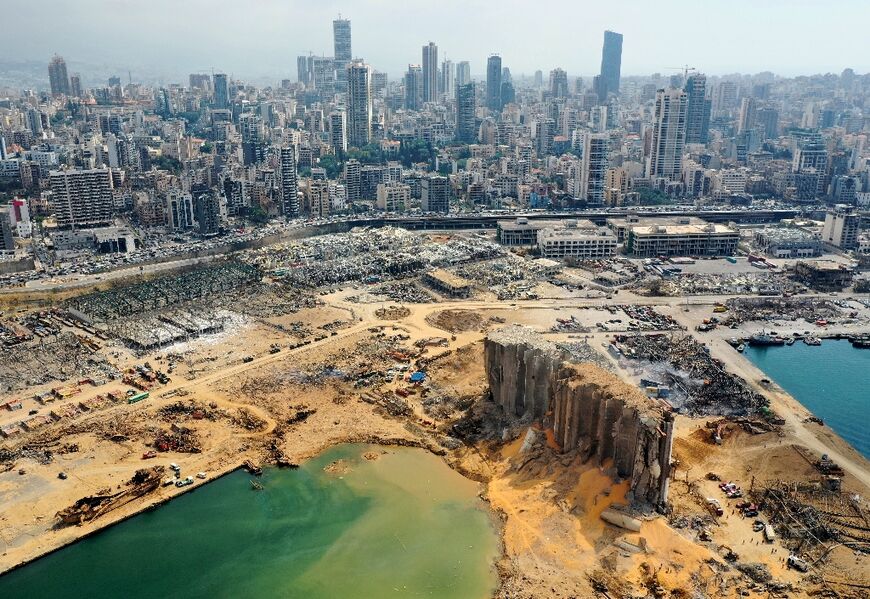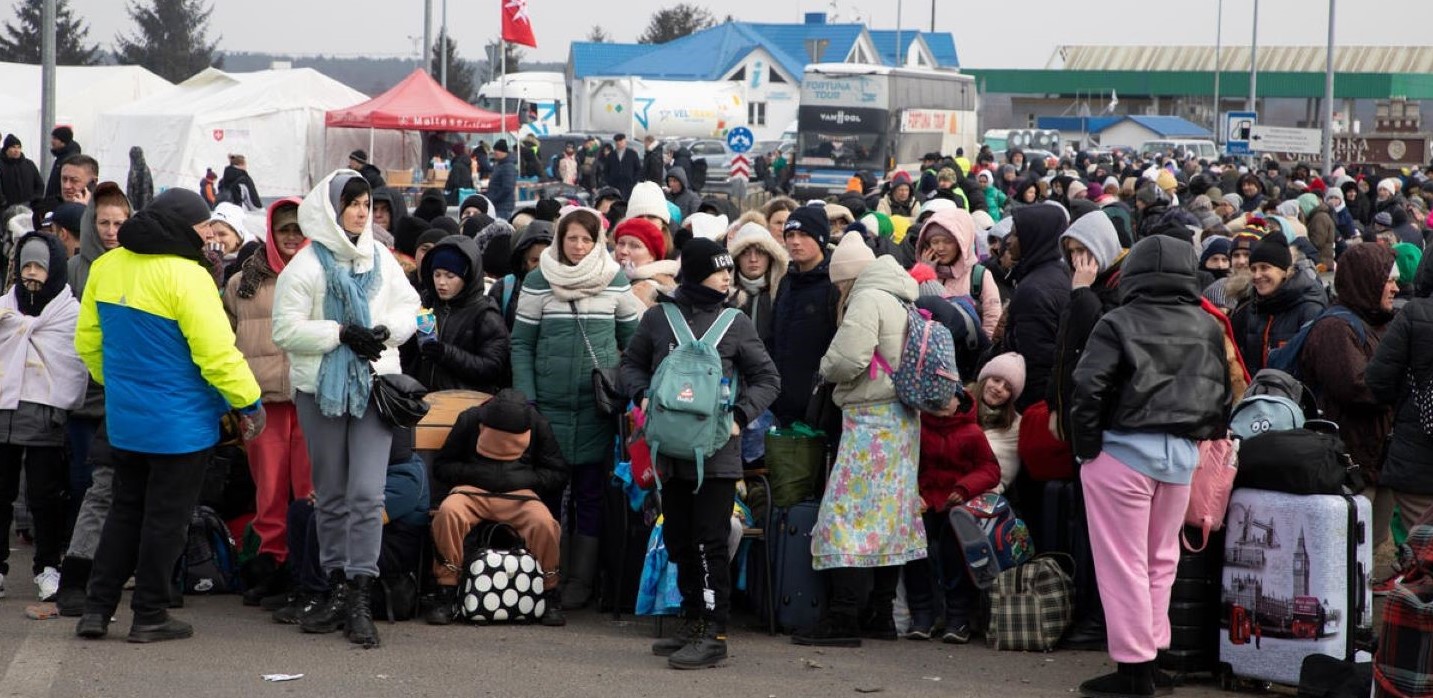After Covid-19, economic collapse and the Beirut port explosion, the LGBTQ+ community finds itself newly targeted

The LGBTQ+ community is concerned at the scale of recent official hostility (AFP)
in Beirut, Lebanon
Published date: 10 July 2022
Sitting on the balcony of his apartment in the Achrafieh neighbourhood of Beirut, Kareem, a 23-year-old filmmaker who identifies as queer, reflects on the latest developments targeting his community in Lebanon.
“As a Syrian and queer person, every time I pass a military base, I wonder what would happen if they arrested me,” he tells Middle East Eye, asking for his surname not to be used over fears for his security. “Last week, no fewer than nine Syrians were arrested in Beirut and Saida, and other places in Lebanon, on the basis of expired residency." It's little wonder he's concerned at being singled out, and that's before taking into account "the increase in measures against LGBTQ+ people in the country".
Kareem arrived in Lebanon in 2016 from his village in Sweida, southwestern Syria, with a scholarship to begin his studies in television and film at the Lebanese American University.
Looking out of the window, he describes how Lebanon's LGBTQ+ community has been impacted by a three-pronged crisis over the past three years: the Covid-19 pandemic, the country's economic collapse, and the Beirut port explosion in 2020 have created a housing crisis for the community, and left many without jobs.
“In Beirut, I learned to surround myself with people who accept me for who I am," he says. "It's part of the process of self-acceptance. However, the number of safe spaces we used to have has diminished considerably.
"The 4 August explosion in Beirut completely destroyed neighbourhoods that included safe places like coffee shops and bars, such as Riwaq, Kalei or Tota," he says, referring to the huge blast at the capital's port that left more than 200 people dead, and devastated some of the city's most trendsetting areas.
"Now they have been rebuilt and I can meet my friends again," he says, but adds that many LGBTQ+ people lost their homes in the explosion.
Published date: 10 July 2022
Sitting on the balcony of his apartment in the Achrafieh neighbourhood of Beirut, Kareem, a 23-year-old filmmaker who identifies as queer, reflects on the latest developments targeting his community in Lebanon.
“As a Syrian and queer person, every time I pass a military base, I wonder what would happen if they arrested me,” he tells Middle East Eye, asking for his surname not to be used over fears for his security. “Last week, no fewer than nine Syrians were arrested in Beirut and Saida, and other places in Lebanon, on the basis of expired residency." It's little wonder he's concerned at being singled out, and that's before taking into account "the increase in measures against LGBTQ+ people in the country".
Kareem arrived in Lebanon in 2016 from his village in Sweida, southwestern Syria, with a scholarship to begin his studies in television and film at the Lebanese American University.
Looking out of the window, he describes how Lebanon's LGBTQ+ community has been impacted by a three-pronged crisis over the past three years: the Covid-19 pandemic, the country's economic collapse, and the Beirut port explosion in 2020 have created a housing crisis for the community, and left many without jobs.
“In Beirut, I learned to surround myself with people who accept me for who I am," he says. "It's part of the process of self-acceptance. However, the number of safe spaces we used to have has diminished considerably.
"The 4 August explosion in Beirut completely destroyed neighbourhoods that included safe places like coffee shops and bars, such as Riwaq, Kalei or Tota," he says, referring to the huge blast at the capital's port that left more than 200 people dead, and devastated some of the city's most trendsetting areas.
"Now they have been rebuilt and I can meet my friends again," he says, but adds that many LGBTQ+ people lost their homes in the explosion.

Riwaq, an LGBTQ+ friendly restaurant in Beirut's Geitawi district
(MEE/Clément Gibon)
"Some activists from the community organised fundraisers to help people from the LGBTQ+ community to restore their homes," he says.
"However, the aid wasn’t enough, as a lot of people were also suffering from mental health issues as a result of the blast. Aid was also not enough to address all the needs of the community.”
"Some activists from the community organised fundraisers to help people from the LGBTQ+ community to restore their homes," he says.
"However, the aid wasn’t enough, as a lot of people were also suffering from mental health issues as a result of the blast. Aid was also not enough to address all the needs of the community.”
'Contrary to the habits and customs of our society'
In its latest report on the situation facing the LGBTQ+ community in Lebanon, Oxfam determined that housing was one of their main challenges, with the community facing increased exposure to violence in their current living spaces and experiencing an urgent need for shelter.
The report found that as a result of the three-pronged crisis, 70 percent of LGBTQ+ respondents said they had lost their jobs, making meeting even their most basic needs increasingly complicated.
The deterioration in their economic status and loss of safe spaces have had a significant impact on the mental health of the LGBTQ+ community, ranging from suicidal thoughts to health risk behaviours related to coping mechanisms.
It was in this vulnerable context that Lebanon's outgoing interior minister, Bassam Mawlawi, sent a letter on 25 June, during Pride Month, to the General Security Directorate and the General Directorate of Internal Security Forces (ISF), asking them to prevent “gatherings aimed at promoting sexual perversions”.
"This phenomenon is contrary to the habits and customs of our society" and religious principles, Mawlawi said, adding that "personal freedoms cannot be invoked".
For Tarek Zeidan, executive director of Helem, the first LGBTQ+ rights NGO in the Arab world (established in Beirut in 2001), the measure was vague, underhanded and calculated to divert attention from unpopular policies.
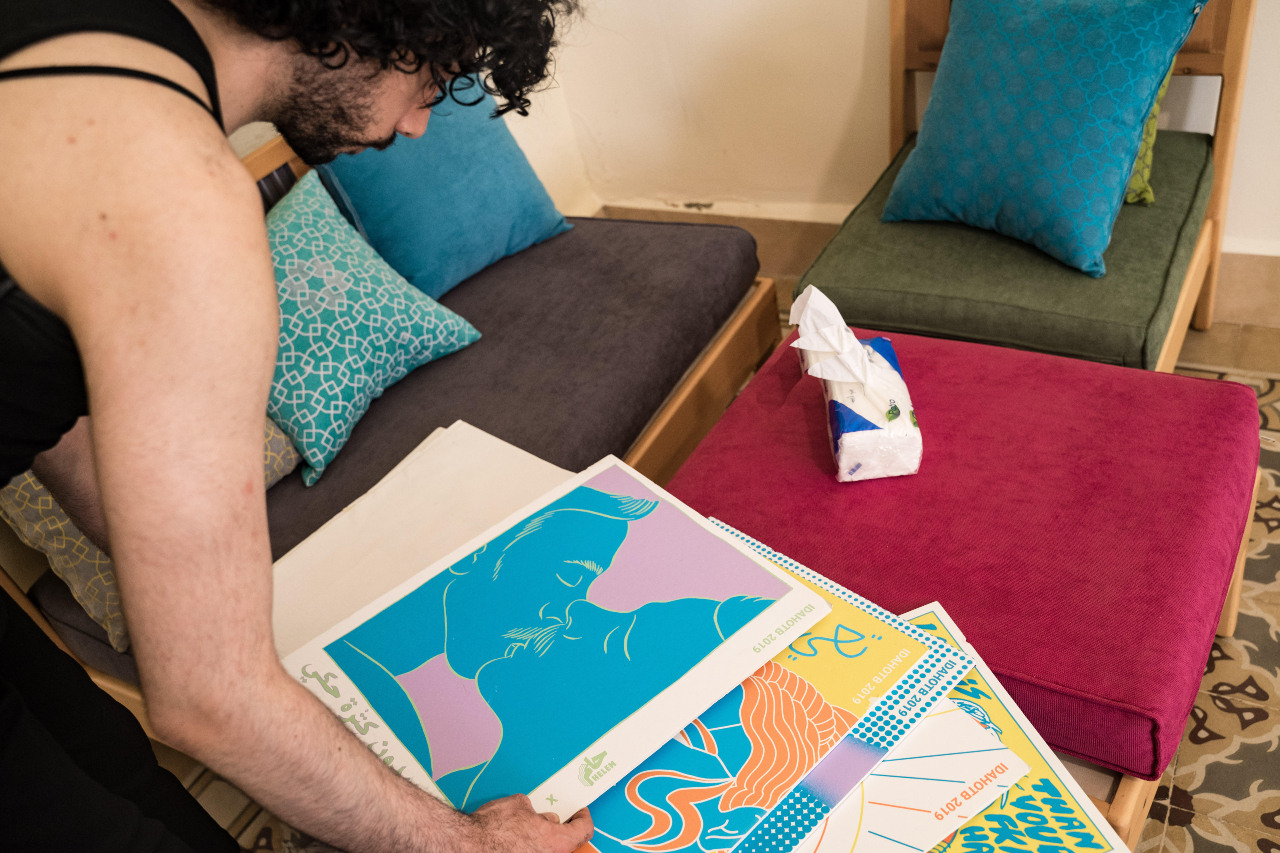
Activists at Helem in Beirut, a pioneer for LGBTQ+ rights in the Arab world (MEE/Clément Gibon)
“This is like the cherry on top: many people are afraid and angry at this barbaric, unnecessary and unbelievable aggression that is used against us," he tells MEE.
"What we have done has not changed; what has changed is the status quo in Lebanon, and that was the catalyst for this letter.
“In despotic, autocratic or militarised regimes, it is common to fabricate artificial morals or moral panics to divert public attention in times of great economic and social dysfunction,” Zeidan adds.
Events cancelled and postponed
Mawlawi's letter is especially controversial because it not only exceeds the rights granted to him as interior minister, but also violates both the Lebanese constitution - which guarantees freedom of expression - and treaties it has ratified, such as the International Covenant on Civil and Political Rights.
The measure also contradicts the recommendations to guarantee the right to peaceful assembly and expression of LGBTQ+ people that Lebanon accepted at its Universal Periodic Review at the UN Human Rights Council in 2021.
“This is like the cherry on top: many people are afraid and angry at this barbaric, unnecessary and unbelievable aggression that is used against us," he tells MEE.
"What we have done has not changed; what has changed is the status quo in Lebanon, and that was the catalyst for this letter.
“In despotic, autocratic or militarised regimes, it is common to fabricate artificial morals or moral panics to divert public attention in times of great economic and social dysfunction,” Zeidan adds.
Events cancelled and postponed
Mawlawi's letter is especially controversial because it not only exceeds the rights granted to him as interior minister, but also violates both the Lebanese constitution - which guarantees freedom of expression - and treaties it has ratified, such as the International Covenant on Civil and Political Rights.
The measure also contradicts the recommendations to guarantee the right to peaceful assembly and expression of LGBTQ+ people that Lebanon accepted at its Universal Periodic Review at the UN Human Rights Council in 2021.
'The situation is very risky for queers in Lebanon. Some people can’t even leave their homes because they don’t feel safe'- Kareem, 23, a queer filmmaker
It is also seen as normalising hate speech towards the LGBTQ+ community. Following its publication, social networks have seen a wave of incitement to violence against the community by religious groups, individuals and even members of parliament.
Several events offering safe spaces to the LGBTQ+ community have been cancelled - like those planned by Haven for Artists, a feminist-cultural organisation promoting art and activism - or postponed for security reasons.
Kareem says these cancellations and suspensions have come at the very time when the community needs to come together.
“A panel discussion that I was planning to attend has been cancelled, probably because in this situation the event could risk becoming a target by the government to arrest people who attend it, whether they are queer or not," he says. "This is another strategy of the Lebanese government to divide and conquer, and spread anxiety.
“The situation is very risky for queers in Lebanon. Some people stated that they felt like they can’t even leave their homes because they don’t feel safe,” he adds.
Other types of intimidation include the vandalism of rainbow billboards, such as one installed by the group Beirut Pride that was destroyed by a Christian group called the Soldiers of God.
Judicial backing
While Lebanese authorities have regularly interfered with gender and sexuality human rights events, it is the scale and intensity of recent events that have concerned the LGBTQ+ community.
Nonetheless, the community has been successful in asserting some of its rights in recent years.

Lebanon to break up LGBTQ+ gatherings after pressure from religious groups
Read More »
Since 2009, no fewer than five court rulings have gone against Article 534, the penal code directly inherited from the French mandate that criminalises “unnatural sexual intercourse”.
Karim Nammour, a legal researcher, activist and member of The Legal Agenda, a Beirut-based non-profit research and advocacy organisation, described to MEE the progress brought by the most recent 2018 Mount Lebanon Misdemeanour Court of Appeal decision.
“The judiciary started issuing decisions stating that homosexuality is not against the order of nature. In the last couple of decisions it went further and stated that homosexuality is the exercise of a natural right and therefore should not be considered as a crime,” he says.
“We wish to see parliament follow the footsteps of the judiciary in promoting LGBTQ+ rights. A lot of members of parliament spoke about LGBTQ+ rights in their campaigns, and programmes. Now we wish to see them advocating for it in the parliament.
"If that doesn't work, the judiciary can continue to oppose article 534 and stop prosecuting people under it,” he adds.
The issue of LGBTQ+ rights has officially moved from being a side issue to a serious and politically divisive debate, Zeidan acknowledges.
“Our mainstreaming efforts are horizontal, with other people mobilising; not just vertical, with an already established entity or institutions. In many cases, our role is to co-create a new Lebanon, a new system, or whatever is being developed.”
Activism for the advancement of LGBTQ+ rights has also been steadily increasing, with different initiatives and a growing motivation within the community.
“It is important to know that our strength and security come from our numbers, and we are many," says Kareem. "We have to stand up and tell them that they have to go, not us.”
Since 2009, no fewer than five court rulings have gone against Article 534, the penal code directly inherited from the French mandate that criminalises “unnatural sexual intercourse”.
Karim Nammour, a legal researcher, activist and member of The Legal Agenda, a Beirut-based non-profit research and advocacy organisation, described to MEE the progress brought by the most recent 2018 Mount Lebanon Misdemeanour Court of Appeal decision.
“The judiciary started issuing decisions stating that homosexuality is not against the order of nature. In the last couple of decisions it went further and stated that homosexuality is the exercise of a natural right and therefore should not be considered as a crime,” he says.
“We wish to see parliament follow the footsteps of the judiciary in promoting LGBTQ+ rights. A lot of members of parliament spoke about LGBTQ+ rights in their campaigns, and programmes. Now we wish to see them advocating for it in the parliament.
"If that doesn't work, the judiciary can continue to oppose article 534 and stop prosecuting people under it,” he adds.
The issue of LGBTQ+ rights has officially moved from being a side issue to a serious and politically divisive debate, Zeidan acknowledges.
“Our mainstreaming efforts are horizontal, with other people mobilising; not just vertical, with an already established entity or institutions. In many cases, our role is to co-create a new Lebanon, a new system, or whatever is being developed.”
Activism for the advancement of LGBTQ+ rights has also been steadily increasing, with different initiatives and a growing motivation within the community.
“It is important to know that our strength and security come from our numbers, and we are many," says Kareem. "We have to stand up and tell them that they have to go, not us.”












